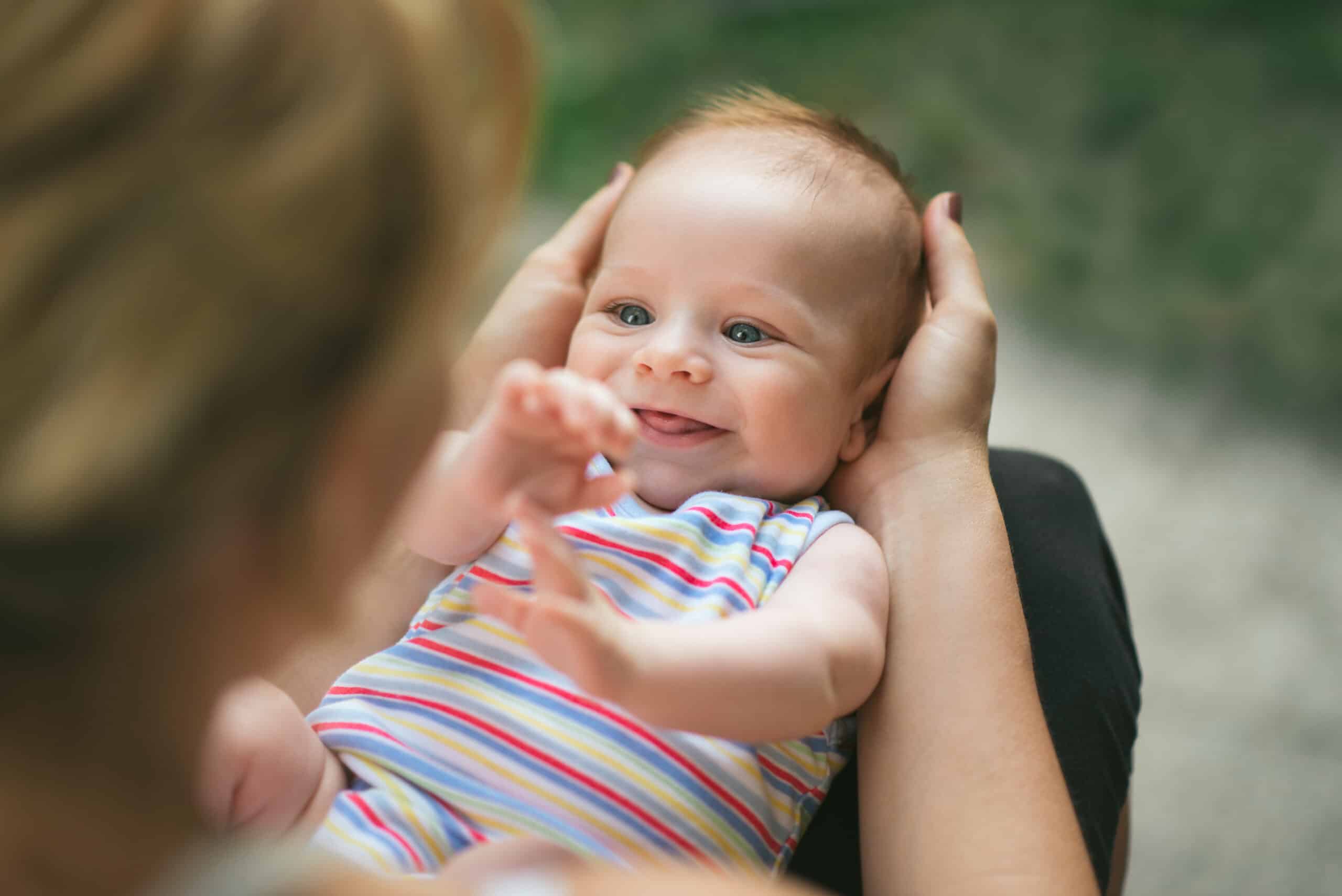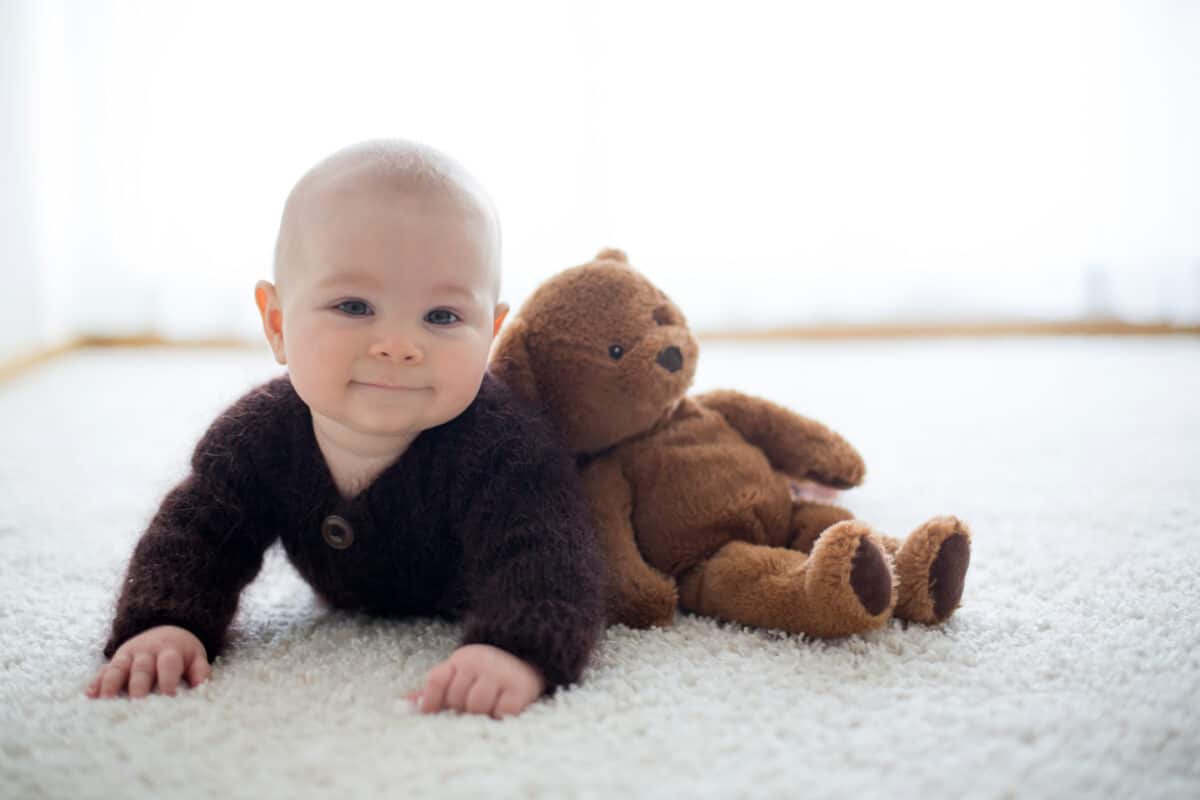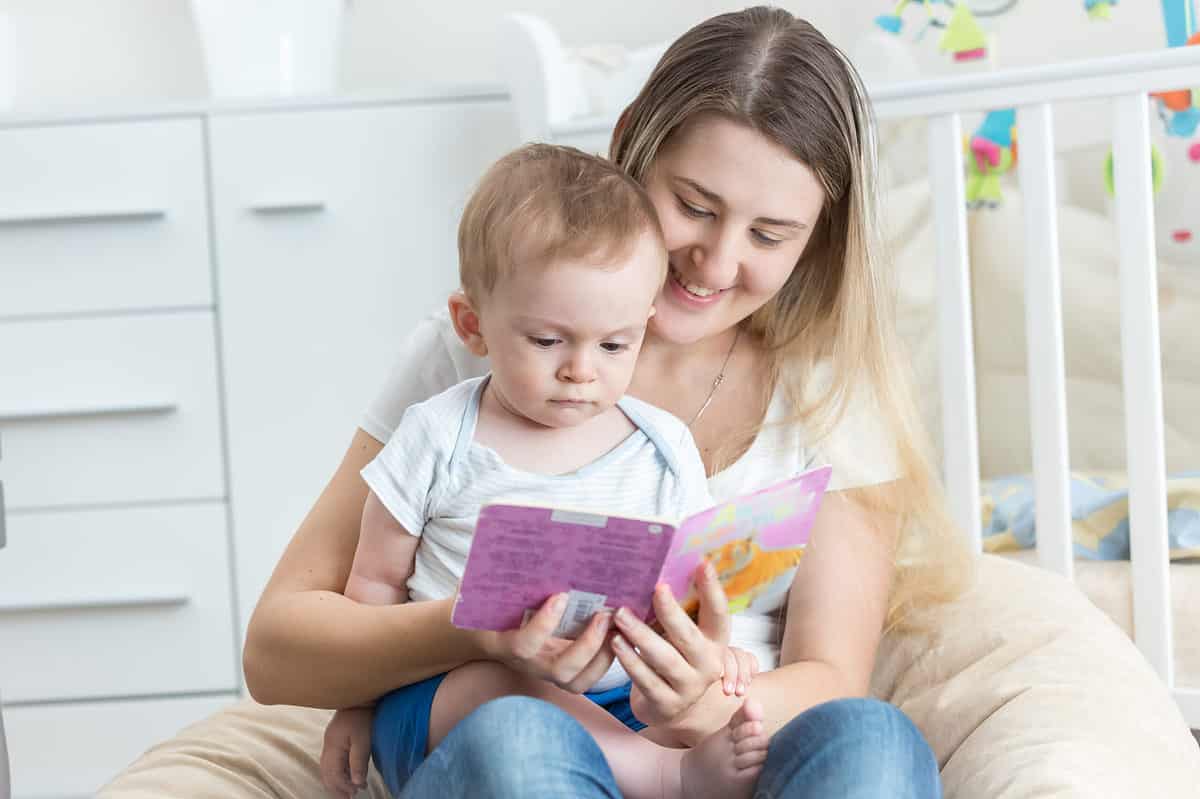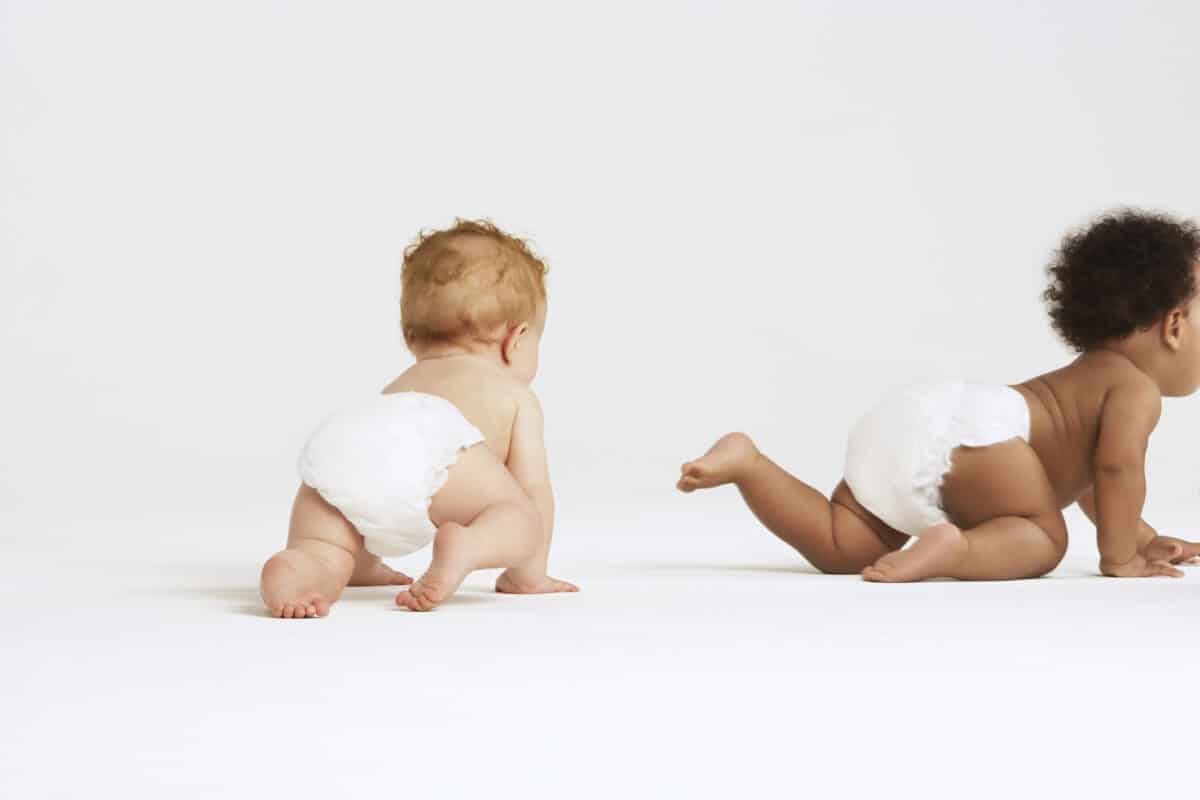

The Developmental Milestones at Nine Months of Age
Developmental milestones can help parents, caregivers, and pediatricians get a general sense of how a child is developing. While not all babies will reach all milestones at the same time, they can be useful in identifying signs that a child may require additional assistance. It's important to consider the following developmental milestones at nine months of age in the context of how your baby has been developing since birth. Look for broad groups of abilities and behaviors rather than specifics. If you notice that something has changed dramatically in your baby's rate of development or abilities, you should call your pediatrician and share your concerns. However, if your baby continues to gain abilities, they are most likely developing normally. Below, we'll discuss the milestones your baby will achieve at this age!
Key Points
- At nine months old, your child should understand cause and effect, be able to move along the floor by rolling or crawling, and arch their back stiffly.
- Your child should be able to reach out and grab moving objects.
- They will understand the meaning of basic words, such as "no" and "bye". They should also respond when their name is called!
Your Baby at Nine Months Old
Your child is now nine months old! You're probably wondering where the time went while also relieved that the helpless newborn stage is over. That took a lot of effort! Your baby is now an enterprising, vocal, and mobile adventurer eager to learn about his surroundings. You're probably constantly surprised by what they notice.

©Tomsickova Tatyana/Shutterstock.com
You marvel at your child's accomplishments every day, so you're not dismissing their progress when you wonder, "What skills should my nine-month-old baby have?" The closer you get to your baby's first birthday, the more pressure you may feel to stay "on track." But keep in mind that the track does not always look the same for everyone — and that's fine. Most of these milestones have a fairly wide range, so don't be too concerned if your baby hasn't reached them yet.
Milestones in Language/Communication Development
The ability of a baby to speak at nine months of age varies greatly from baby to baby. Your baby should be expressing themselves through facial expressions, gestures and sounds at this age. They're giddy and squealing with delight. In short, their communication is still evolving.
This means that the baby is becoming more vocal as well. Most nine-month-old babies are still experimenting with sounds, stringing vowels and consonants together (think "bababababa"). While your baby may stumble upon words by accident when they are babbling, words don't have any meaning to them and can't talk until they're close to their very first birthday. However, some babies arrive earlier than that.
What You Can Do to Promote Your Baby's Development
- When your baby points to something, talk about what he or she wants
- Repeat your baby's sounds and words, and make sure you say them clearly and correctly
- Discuss with your baby what you and your baby are seeing or doing
- Examine and read books with your child
- Describe what your child is looking at, such as "a big black dog"
- Play games, sing songs, and recite nursery rhymes with your child

©kryzhov/Shutterstock.com
Physical Milestones
At this age, the majority of babies can sit up. They also tend to sit for longer periods of time. Around this time, baby develops the "pincer grip," which allows them to pick up objects with their index finger and thumb. They are most likely also attempting to stand (on everything, making you one nervous mama). This most likely includes standing and grasping objects in order to pull themselves around.
And, yes, most babies crawl by nine months, so your new job title is baby wrangler. Don't worry if your baby isn't crawling yet; some babies skip that stage. They progress from Army crawling to walking after a few months.
Cognitive Milestones
Your child has been practicing eye control movements and eye-body coordination over the last few months. Their eyes can now collaborate to form a three-dimensional view of the world. They have the ability to see in color.
However, now that the baby is probably crawling, their hand-eye coordination is improving even more! Baby has also improved his distance perception and ability to throw objects. Any parent of a 9-month-old who has ever left a spoon on a high chair tray is familiar with this exciting new development.
Movement Milestones
Watch out, world: baby may be on the move soon! Although most babies begin walking around their first birthday, some babies begin walking as early as nine months of age. If so, they'll most likely be a seasoned walker by their first birthday. Some children do not walk until after their first birthday. So don't worry if your little munchkin is still content with doing the booty-scoot across the floor of your living room or cruising along the coffee table. Most babies achieve this milestone at around age 11-15 months.
Here are some pointers to keep in mind as your baby gains more mobility:
- Provide a large, safe space for baby to move around and explore
- Stay close by as your baby explores and moves around so he or she knows you are nearby
- Place your baby near furniture so that it can safely pull up to stand
- Lock doors leading to the basement and outside, use safety gates, lock up car care and lawn care products, laundry and household cleaning products.

©sirtravelalot/Shutterstock.com
Social and Emotional Developmental Milestones
In addition to cognitive and physical abilities, a baby must also develop emotional, behavioral, and social bonding skills. You will notice that around this time, your child is:
- Clingy to primary caregivers: The child prefers to be near his or her parents and cries when separated from them. They enjoy cuddling, smile a lot, and try to please you
- When confronted with a new face, the baby will panic and cry. This is referred to as separation anxiety. Even if the stranger is friendly and playful, the baby will crawl towards the parent
- Favoritism among toys: You may notice that they play with a particular toy more despite the presence of a new toy. This is due to the fact that preferences for specific items peak around nine months
- Loving spending time with familiar faces: The baby is happiest when they are with their parents and other primary caregivers such as grandparents. They now understand that their caregivers form a single unit known as family. The baby will always find food and safety with them. As a result, family time is now enjoyable because the baby is happy and always eager to play the next game
While those are the developmental milestones, keep in mind that each baby is unique and may develop at a different rate.
What to Do to Promote Your Baby's Development
- Be available, responsive, and gentle with your child
- Maintain routines, which are especially important now, so that your baby feels safe and secure
- Pay attention to how your baby reacts to new situations and people, and try to do things that make him/her feel at ease and happy
- Stay close by as your baby explores and moves around so he or she knows you are nearby.
- Play games like "my turn, your turn"
- Introduce simple, everyday activities and games for baby's sensory development
- Name your emotions, such as sadness, rage, or happiness
- Say what you believe your baby is feeling, for example, "You're sad, so we're going to try to make you feel better"
- Discover your baby's moods: Continue to do what makes your baby happy, and take a break to comfort your baby when he or she is upset
- Ask for desired behaviors rather than telling your baby what not to do, such as asking them to sit ("time to sit") and not stand ("don't stand")

When to See a Doctor
If your baby isn't growing as properly as they should now, it will have a significant impact on future development. Here are a few things to keep an eye out for:
- At this age, your baby should be able to use their arms and hands fairly well; however, if your baby does not hold onto things or if their grip is very weak, it is best to bring this to the attention of your doctor.
- If your child is unusually quiet and does not attempt to babble or repeat anything, he or she may be experiencing a developmental delay.
- At nine months of age, babies should be able to sit up and crawl by themselves. If your baby isn't sitting or crawling even with assistance, you should see a doctor.
- If your baby appears blank and doesn't smile or laugh in pleasure when he's sees you or any of your baby's primary caregivers, he has missed a developmental milestone.

What Will Come Next?
Now that your baby is nine months old, you might be looking ahead to what they'll achieve at ten months! Your baby is going to continue to grow at a fast pace, so there's plenty more growth for you to enjoy. It's probably hard for you to believe that they're already almost a year!
Your baby will likely begin to show their personality a lot more! Their actions and interactions with you will get a lot more expressive, and you'll notice them emoting a lot. They may start showing an interest in playing with another baby, and will start to have more complex interactions with their siblings.
Your baby will start to understand instructions and will begin to feel a pull to do certain things. It's very important at this age that you baby-proof your home as much as possible, because your baby will begin to get curious about their world. They don't know any better to avoid certain circumstances or objects!
Conclusion
It's critical to remember to spend time with your baby as a family. This is helpful in teaching them to form social relationships and bonds, as well as making them very happy. Many of their developmental milestones will be met without issue as long as your baby is constantly surrounded by loved ones to encourage them. Babies who are healthy and happy should develop normally and meet all of their developmental milestones. However, if you have any doubts about whether or not your baby is developing normally, consult your doctor. Early detection is very important.